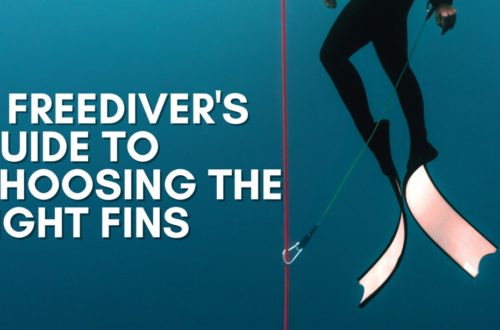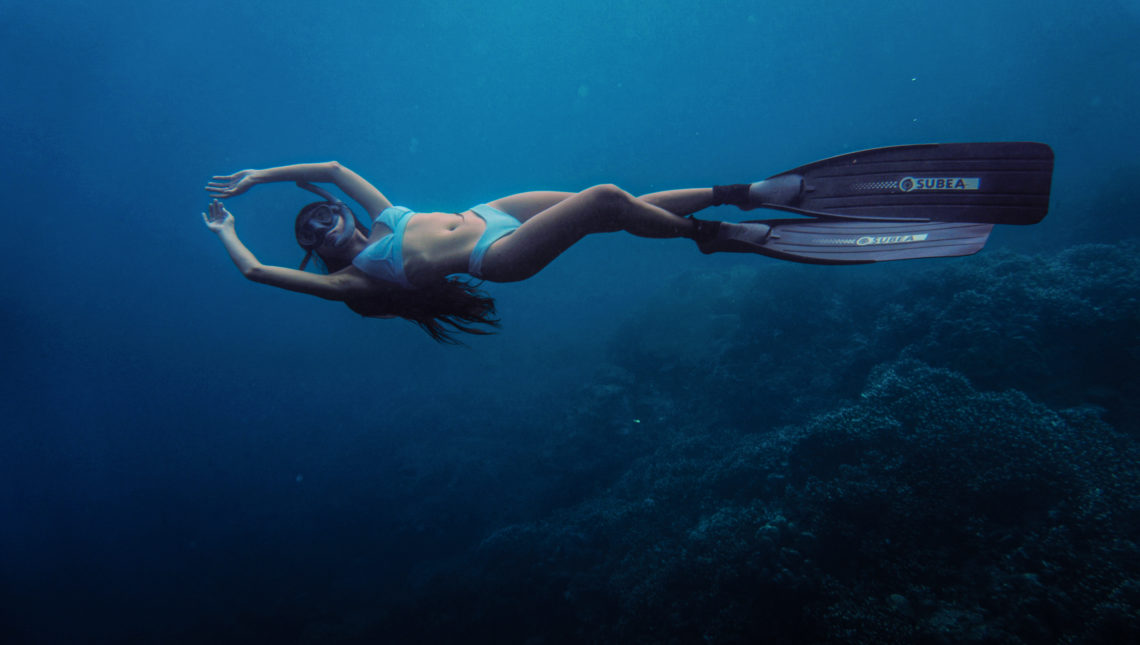
Amazing Health Benefits of Freediving
The idea of diving into the deep in one breath makes us think that Freediving is quite a dangerous sport. We descend to that unfathomable depth with nothing but a good coordination of the mind and body. However, a regular dive with a good training could most likely change this notion. If done properly, we would realize that it truly has a positive impact to our physical and mental health. With that, here are some of the amazing health benefits of Freediving!
Health Benefits of Freediving
1. Reduces Stress and Anxiety
Though other sports may also do this, Freediving has an entirely different way of reducing our stress and anxiety. Unlike any other sports where you need to be warmed up and pumped, you have to be in an extremely relaxed state before entering into the water. Indeed, it is one of the most fascinating health benefits of Freediving. Your steady breathing and slow heart rate allow you to hold your breath for quite some time, go deeper and dive safely, too. In order to achieve that trance-like state, there are certain activities that you need to do prior to the dive. This involves deep relaxation including breathing exercises, meditation and stretching or yoga.
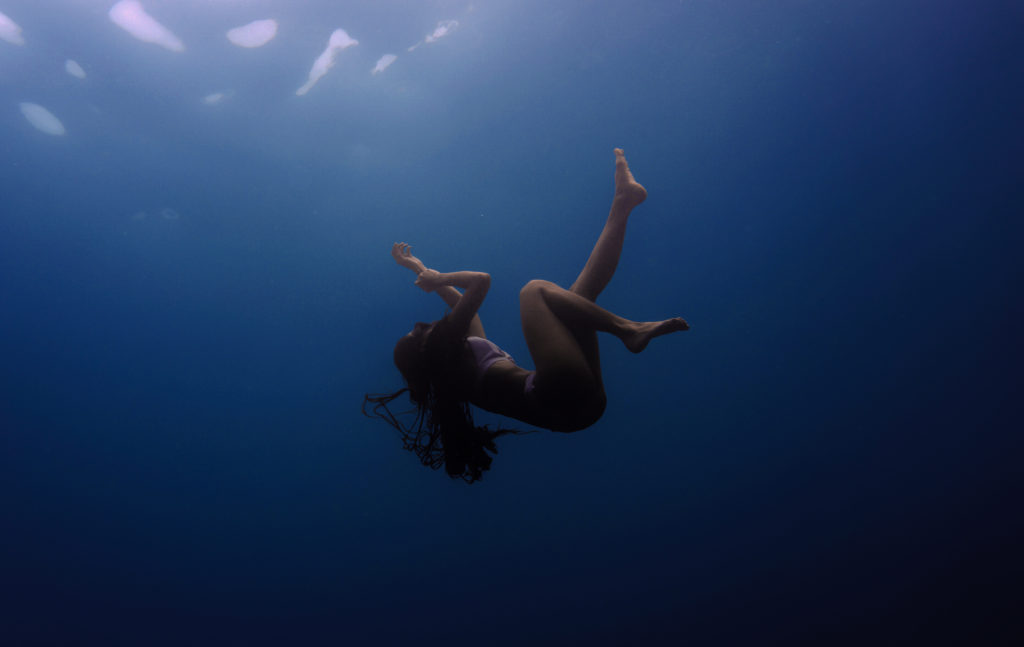
Photo courtesy of There Cee Goes
When we are stressed and anxious, our breath becomes quicker and shorter, our muscles tighten, our blood pressure rises as our hearts beat faster. Consequently, the aforementioned activities for deep relaxation before diving helps us to reduce these. The good thing is, we can still practice these even beyond the waters.
Related article: Dealing with Stress and Anxiety through Freediving
2. Improves Focus
Freedivers who descend in one breath into the waters should focus on nothing else but the present moment. They should observe if they’re still able to equalize, what equalization technique works best for them at a certain depth, their oxygen management or if contraction is already kicking in.

Freediving gear from Decathlon Philippines
Start your own underwater adventure here!
The good thing about this is that, freedivers tend to adapt this ability to focus even on their everyday lives. Their increased focus and awareness has also become applicable in some other areas or tasks that they engage into other than freediving.
3. Clears the Mind
Clearing one’s mind in Freediving also has something to do with focus. As you descend into the depths, your mind should be free from any distractions since you have to focus on some things for your safety as well. Thus, the ability to clear the mind. You should leave your worries and distractions out of the ocean.
This indeed would take a lot of yogic practice and meditation. Further, being able to do so helps one a lot in different aspects of life aside from doing it for Freediving.

Start your own underwater adventure here!
4. Improves Flexibility and Fitness
Before the dive, freedivers would do deep stretch routines or yoga. This activity actually allows us to move our muscles in full range of motion. It entails several benefits including prevention of cramps and strengthening or activating the muscles. More often than not, those who wouldn’t do some stretching would experience muscle cramps and weariness during and after the dive.
Apart from the muscles in the core and extremities, freedivers also do breathing exercises and stretching to improve the flexibility of the rib cage and the diaphragm. This activity helps us breath effectively which makes our dives more efficient.
Personally, I have started doing workouts as well when I decided to do depth trainings, too. My workout routine would usually include cardio vascular and high intensity, muscular, flexibility and mental training. If you decide to take the sport seriously, your workouts should also be beneficial and appropriate for its demands.
5. Eases Pressure from the Joints
Various research has proven how beneficial water sports are especially to the joints. One of these said sports is of course, Freediving or diving in general. It is unlike the high-impact sports and activities that stress the joints overtime. With minimal weights or no weights at all, we are neutrally or positively buoyant in the waters. Our bodies’ weightlessness due to this buoyancy eases the pain because of the pressure on the joints. The sport itself does not strain the joints. Thus, people with painful or sore joints may enjoy and comfortably engage into this activity. However, it should be noted that a physician’s advise has to be sought first.
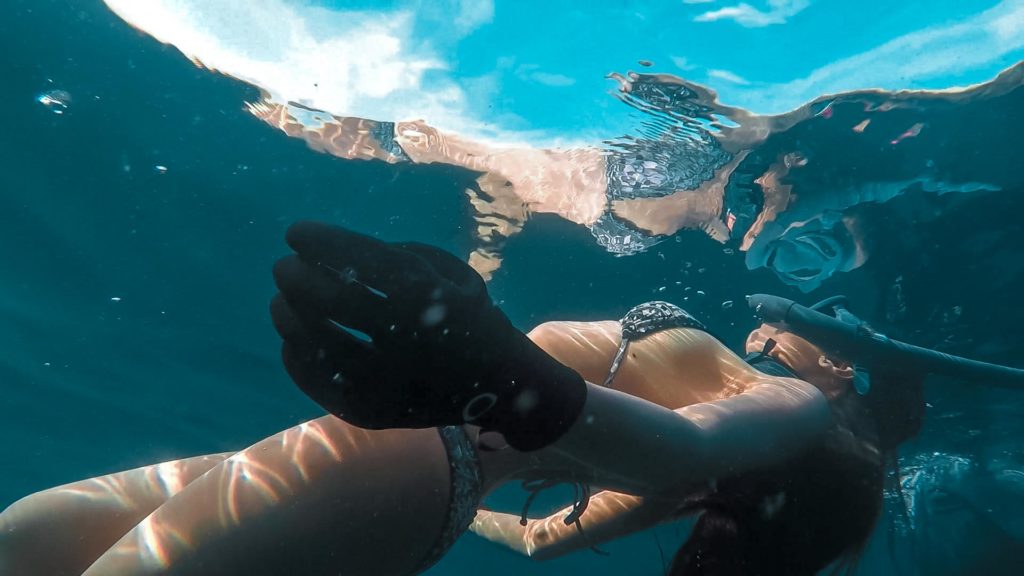
6. Increases Lung Function and Capacity
On ordinary days at land, we breath normally from our chests. Notice it as our chests rise and fall as we breathe. More often than not, this is what the newbie freedivers do. However, as we get more serious about the sport, we would realize that breathing from the chest would only allow us to dive at certain depths yet no way deeper. We would start to notice that it starts getting difficult to equalize in the deep. With that, we should train for various breathing techniques.
Freediving allows us to explore various breathworks that are not just beneficial for our depth goals but also to our lungs per say. Among these are Carbon Dioxide (CO2) or Hypoxia (O2) tables, inhalation an exhalation stretches, segmented breathing and Apnea walks. These breathing techniques actually increase the freedivers’ lung function and capacity. The residual volume, CO2 and O2 management and breathing through the diaphragm are among the key takeaways in these trainings. With these, we learn to make the muscle groups relevant to breathing and equalization work. Thus, this is when we become conscious about breathing.
7. Tones the Muscles
Though freediving requires relaxation for an efficient dive, it doesn’t mean that the muscles would have to be entirely at rest. The different Freediving disciplines require some muscle work that tone them eventually. One of which is the finning itself that requires leg power for propulsion. Another one is the CNF (Constant Weight No Fins) that requires you to pull and kick with power; hence, put your arms and legs at work to ascend and descend. On the other hand, when we do the dolphin kick, we use our core and hips. When we do these regularly at the same time work out to strengthen these muscles, toning is guaranteed.
Enjoy the Health Benefits of Freediving now!
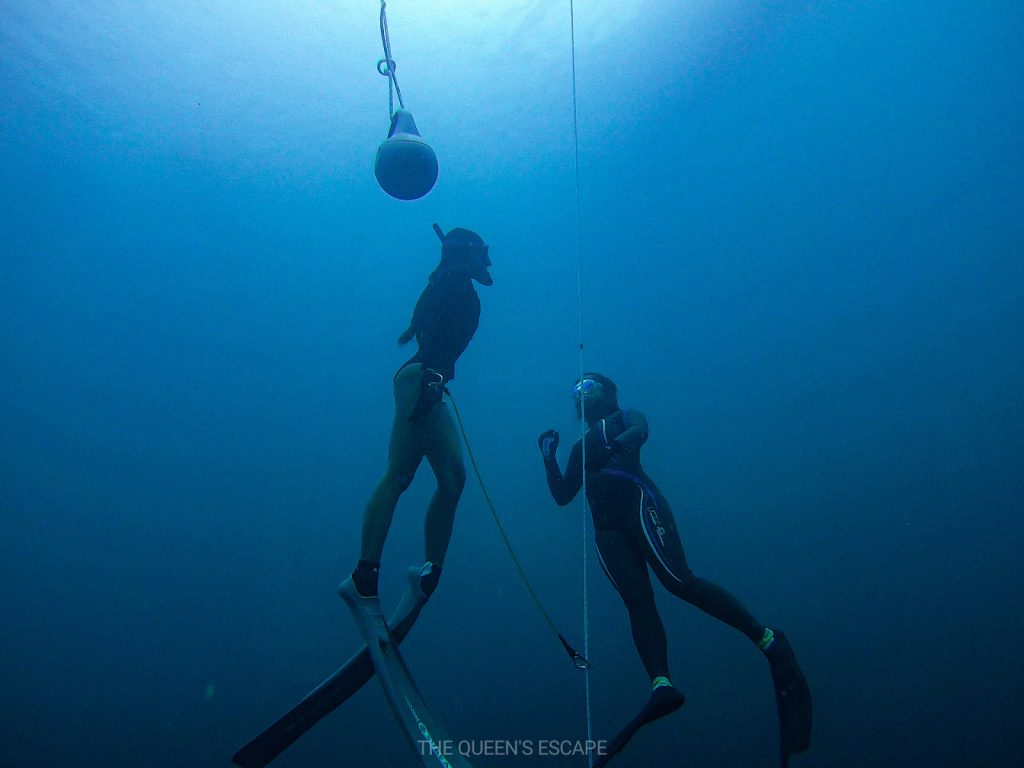
Freediving gear from Decathlon Philippines
Start your own underwater adventure here!
Start loving the depths of the blue world and enjoy these health benefits of Freediving today. Take your Introduction to Freediving classes and get yourself your first mask and fins if you haven’t tried this sport yet! If you already have tried and been doing this, tell us more about your gains in Freediving!
You may also want to read: A Day in the Life of a Freediver



